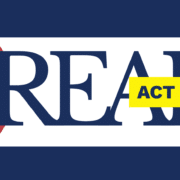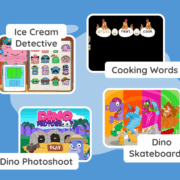What Parents Should Know About 504 Plans and IEPs
As a parent, you know your child best. If your child is struggling more than expected in school, you might be wondering what support is available. In Colorado, families have the right to ask their school district for a formal evaluation to see if their child qualifies for special education services through an Individualized Education Program (IEP) or accommodations under a 504 Plan.
The process often begins with a written request to your child’s school or the district’s Child Find office. From there, the school will gather information, conduct assessments (with your consent), and meet with you to discuss whether your child qualifies for extra supports.
Knowing where to start can feel overwhelming, but the good news is that Colorado offers clear procedures, resources, and parent supports to guide you every step of the way. Below are some key differences between each service and some help on how to get started.

Section 504 Plan
- Based on Section 504 of the Rehabilitation Act of 1973, a civil rights law that prohibits discrimination on the basis of disability.
- Ensures that a student with a disability has equal access to education and school programs by providing accommodations and supports.
- Accommodations might include preferential seating, extended time on tests, breaks, use of assistive technology, modified assignments, etc.
- You can learn more about Section 504 here: https://www.ed.gov/laws-and-policy/individuals-disabilities/section-504
Individualized Education Program (IEP)
- Governed under the Individuals with Disabilities Education Act (IDEA).
- An IEP is a legally binding document that spells out special education services, supports, and modifications your child needs to make progress in school.
- It describes your child’s current performance, measurable goals, how those goals will be assessed, and when/where services will be delivered.
- You can learn more about the IDEA here: https://www.ed.gov/laws-and-policy/individuals-disabilities/idea
Key Differences
| Feature | 504 Plan | IEP |
| Legal basis | Rehabilitation Act (civil rights) | IDEA (special education law) |
| Who qualifies | Broad definition of disability; substantial limitation in one or more life activity (e.g., learning) | Must meet IDEA’s criteria (one of the categories) and need special education to benefit from school |
| Type of support | Accommodations and supports in general education | Specialized instruction, related services, accommodations/modifications |
| Academic goals or benchmarks | Typically no (or less detailed) goals | Yes — annual goals, progress measurement |
| Team and process | Usually a 504 team (teacher, admin, parent) | Formal IEP team (parents, teachers, specialists, administrator) |
| Frequency of review | Varies (often annually) | At least annually; full reevaluation every 3 years (or more frequently if needed) |
| Scope of protections | Includes access to extracurriculars, nonacademic settings, discrimination protections | Also includes protections but more focused on instruction and educational progress |

What to Expect and What Parents Should Do
Getting Started / Eligibility
- You or your child’s teacher can request an evaluation if you suspect the child has a disability or learning difficulty by contacting the school district’s Child Find or Special Education Department. (For IEP, it’s a full identification under IDEA.) https://www.cde.state.co.us/cdesped/referralresourcefamilies
- Some districts have an intake / referral form that parents can fill out (e.g. DPS’s Child Find has an “intake form” online). https://ess.dpsk12.org/page/child-find
Development
- For an IEP, the IEP team meets to write the plan, including goals, services, accommodations, and how progress will be reported.
- For a 504 plan, the team decides what accommodations and supports are needed to give your child equal access.
Implementation and Monitoring
- Parents should stay involved: ask for progress reports, observe how supports are working, and request changes if needed.
- Both plans should be reviewed periodically. For IEPs, there is at least an annual review and triennial reevaluation.
- If you disagree with decisions, you have the right to due process, mediation, or an impartial hearing (for both 504 and IEP).
Why They Matter
- Promote access and equity. These plans help reduce barriers so children with disabilities can engage meaningfully in school and reach their potential.
- Reduce unnecessary frustration. With appropriate supports, a child may be better able to demonstrate their true strengths and keep pace with peers.
- Legal protection. These are not merely helpful — they are rights guaranteed by law.
Navigating the world of resources and services can be daunting. Feel free to reach out the the Colorado Reading Center if you have any questions about this process or would like to start with an academic assessment to get an accurate measure of you child’s reading skills.













